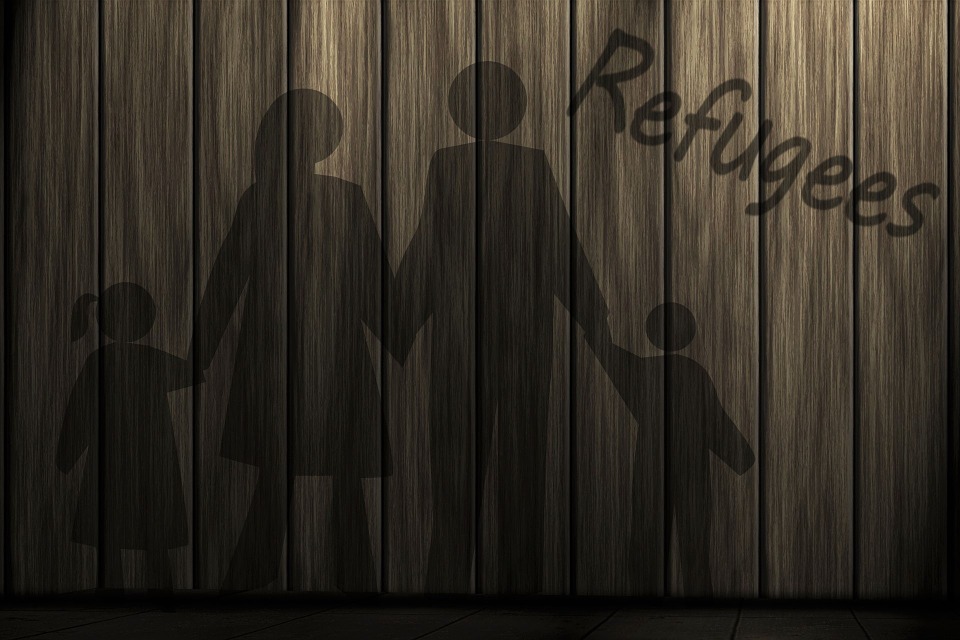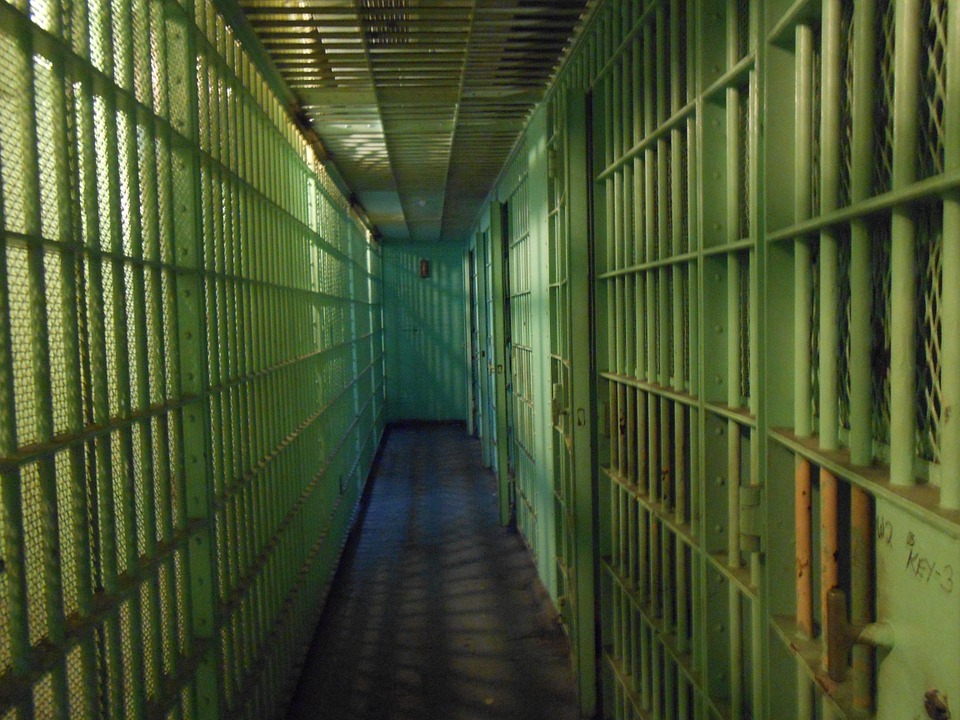Canada Is Not Doing Enough for Refugees
The Senate Committee on Human Rights Finds that the Government Needs to Do More to Help Syrian Refugees, Starting Immediately
Though Canada has been welcoming Syrian refugees with open arms over the past few months, recent findings by the Senate committee on Human Rights has found that we are not doing enough. Since May, the committee has been investigating the integration of newly arrived refugees and their families into the country.
Debt Reduction
After various interviews with the newcomers as well as refugee advocates in Montréal, Toronto, and Ottawa, the committee has asked the government to scrap a travel loan program that has some Syrians repaying up to $10,000 in travel costs. Syrians that have arrived since the Liberal government came into power do not have any debt associated with travel costs, and Immigration Minister John McCallum has considered ending the loan program and forgiving the debt of refugees that had previously entered the country; however, no action has yet been taken to eradicate the program.
Mental Health Treatment
Many refugees arriving in Canada have endured years of war and conflict, often resulting in trauma and mental health problems. The committee is asking the government to develop a national strategy for all three levels of government to treat mental health problems suffered by refugees. The committee heard firsthand how these newcomers are coping after the atrocities they have witnessed and experienced, and one Senator has said post-traumatic stress disorder should be among the Canadian government’s top priorities.
More Support with Integration
The committee not only wants to see the Canadian government welcome refugees, but support their transition into Canadian society as well. Various measures have been suggested to ease this transition, including accelerating the disbursement of child tax benefits for refugees, reducing the economic burden of refugees through loans and grants for transportation and other necessary expenses, increasing funding for language programs along with childcare for parents who are attending classes, and providing more adequate programming for youth to support their unique challenges in the transition to Canadian society.
Differences in Treatment
Most importantly, the committee has requested the Canadian government end the different treatment of refugees based on category, especially between Syrian and non-Syrian refugees. Application processing times for services vary depending on when refugees have arrived in Canada, whether they are privately sponsored or have come into the country on government assistance, as well as other varying factors.
Many committee members were affected by the stories they heard while conducting interviews with Syrians. A full report will be released in the fall, but the committee hopes the government will take action starting immediately.
For anyone sponsoring a family or trying to support newcomers in their community, refugee law offices are available to help you with any questions you may have. Law offices hope to continue serving refugees and newcomers as they navigate the Canadian legal system in their journey to citizenship, and supports all Canada’s efforts to better support the needs of Syrians settling in the country.
Canada Lifts Visa Requirements for Mexicans
In an Offer of Support and Friendship towards Mexico, Prime Minister Justin Trudeau is Encouraging the Flow of Travellers, Ideas, and Business Between Our Two Countries
To strengthen the relationship between Canada and Mexico, Prime Minister Trudeau has been meeting with Mexican President Enrique Peña Nieto to collaborate on similar issues facing the two nations. One area of contention between our countries is the mobility of Mexicans hoping to visit Canada. To remediate this issue, Trudeau has announced on June 28th, 2016 that Canada will be lifting visa requirements as of 1st December to increase the flow of travellers, ideas, and businesses between both countries. By increasing travel between our two countries, the Liberal government hopes to prevent an increase in asylum claims or other forms of irregular migration.
The visa restrictions being lifted this coming December were originally imposed by the Conservative government back in 2009. They were also put in place to restrict the number of asylum claims being made by Mexican citizens. The move was controversial and caused some animosity between the two countries, with Peña Nieto refusing to visit Canada until the restrictions were lifted. The number of Mexicans seeking asylum claims have dropped to under one percent over the last four years (from 25 percent right before the visa restrictions were implemented). However, the restrictions also impede Mexican citizens from visiting due to the lengthy application process to visit, study, or work in Canada.
Peña Nieto is also planning on opening up Mexican markets to Canadian beef products. Mexican borders had previously been closed to Canada’s beef because of the fear of mad-cow disease, but in a move to improve relations between our two countries, Peña Nieto is hoping to support Canadian farmers and their families. Trudeau and Peña Nieto are also hoping to join forces to confront issues facing both Canada’s and Mexico’s Indigenous peoples, uphold human rights, advance democracy, and ensure respect for diversity.
Once the visa requirements have been lifted, Mexicans hoping to work or study in Canada will still need to apply for a work or study permit. Other details regarding the changes in requirements will be provided to Mexican travellers, including applications for an Electronic Travel Authorization (eTA) to fly or transit through Canada (a relatively inexpensive and easy process), prior to the implementation of changes.
For any Mexican residents still hoping to immigrate out of the country, especially asylum-seekers who may be facing discrimination in the country, many immigration lawyers in Canada offer advice and counsel on how to navigate the Canadian legal system. It is important to know your rights and the laws surrounding the immigration process so you can make a safe and legal transition into your new country.
Brexit to Canada?
U.K. Citizens Dissatisfied with their Country’s Politics Seek Refuge in Canada
On May 4, 2016, we published a blog post about the possibility of an increase in American immigrants to Canada after the 2016 elections. Many residents of the United States have expressed frustration at the current state of political affairs and have been threatening to leave their country and join their Northern ally. Though immigration lawyers do not feel Americans are likely to follow through on this threat, a similar trend has revealed itself on the other side of the Atlantic.
Following the decision of the United Kingdom to withdraw from the European Union last week, the Atlantic magazine asked Google what the most common ending was to the search phrase “move to X.” Scotland, which could well secede from the U.K. and re-join the EU, was the most common response. Outside of the U.K., the most common response was Canada.
Similar to the threats of immigration from those living in the U.S., most of these searches probably reflect temporary frustrations rather than a serious life plan. However, the results do highlight Canada’s positive worldwide reputation as a country of immigrants and a beacon of stability. It appears that many people worldwide could see themselves living here, whether they are seeking refuge from a dangerous situation or living with a relatively stable—albeit dissatisfactory—government.
As a country with deep and historical ties to Canada, there are many special opportunities for citizens of the U.K. to come to here, such as working holiday visas. Immigrating to Canada may seem like a big step, and there are many ways to explore the country before deciding it is the right place for you. And if you come for a temporary work placement or an extended holiday and decide to stay permanently, immigration lawyers are always here to support you in your journey to citizenship.
Illegal under International Law
Mixing Immigration Detainees with Prison Inmates
The capacity of Canada’s three dedicated detention facilities allows for approximately 300 detainees, while the total number of immigration detainees in Canada is close to 10,000 (2014). This gap means that Canada, similarly to the practices of many countries facing migratory pressures, houses migrants in criminal facilities, including provincial jails, in order to create enough space to house its immigration detainees. This is despite the fact that immigration-related violations do not constitute criminal offenses in Canada. Therefore, while the practice of housing immigration detainees with criminal offenders may alleviate the pressures on the immigration system, Canadian lawmakers should be aware that this response is contrary to international law, which contains numerous references against mixing prison populations.
Most clearly, Guideline 8 of the UNHCR’s Detention Guidelines relating to asylum seekers states that “detention of asylum-seekers for immigration-related reasons should not be punitive in nature,” and that “the use of prisons, jails, and facilities designed or operated as prisons or jails, should be avoided.” This Guideline is rooted in strong statements in the International Covenant on Civil and Political Rights (Article 10(2)(a)), the Body of Principles for the Protection of all Persons under any Form of Detention or Imprisonment (Principle 8), and the Standard Minimum Rules for the Treatment of Prisoners (Rule 8), all of which refer to the fact that persons in detention should be subject to treatment appropriate to their un-convicted status and with regards to their legal reason for their detention and the necessities of their treatment.
The broad statements included in these general instruments are more specifically reflected in particular international law instruments that directly refer to migrants, such as the International Convention on the Protection of the Rights of all Migrant Workers and Members of their Families and the Principles and the Best Practices on the Protection of Persons Deprived of Liberty in America, which states that “asylum or refugee status seekers and persons deprived of liberty due to migration issues shall not be deprived of liberty in institutions designed to hold persons deprived of liberty on criminal charges.”
While Canada’s Public Safety Minister, Ralph Goodale, recently said that Ottawa needs to “dramatically improve the rules and procedures around [migrant] detention,” it remains to be seen how fast this shift will occur. Recent comments by Minister Goodale as well as by Immigration Minister John McCallum referred to reducing the amount of time that migrants are held in detention, upgrading the three immigration holding centres that currently exist, and ensuring that no migrant minors are held in detention. However, their comments fell short of fully recognizing that the practice of housing migrants with prison inmates is contrary to international law and should be eliminated.
For more information about Minister Goodale and Minister McCallum’s recent comments on this topic, read this Globe and Mail article.
Physicians Call for Change
The Increasing Criminalization of Mental Health has Immigration Lawyers and Physicians in Canada Concerned
When a physician finds out their patient is contemplating suicide, the response will generally be concern. Newcomers undergo a health assessment once they arrive in the country, many of whom are prone to mental health issues after having experienced trauma and war. Immigration lawyers find many refugees that seek asylum in Canada are fleeing torture and death. Recent stories have been coming to light where refugee claimants have been needlessly held or detained, and often the reason for detainment is due to the individual’s mental health status rather than any threat they pose to society.
June 20th is World Refugee Day. “’We Have No Rights’: Arbitrary imprisonment and cruel treatment of migrants with mental health issues in Canada” was released by the University of Toronto one year ago to examine the conditions with which migrants experience detainment. The publication was researched and written by two law students enrolled in the IHRP’s award-winning legal clinic in international human rights, and now, just over a year later, these issues are coming to light in the public eye. Recently, Ontario physicians called for change, stating:
“We believe no one should be transferred to jail for being sick and we are joining more than 140 health-care providers in calling for an immediate end to the transfer of immigration detainees to jails in Ontario.”
Detention and jail time can aggravate any mental health concerns an individual is already experiencing. Many detainees, upon the discovery of a mental or physical illness, are sent to a maximum-security prison instead of receiving treatment.
The International Human Rights Program is in agreement with this sentiment, as it has reported that the Canada Border Services Agency’s (CBSA) treatment of non-citizens with mental health issues breaches Canada’s international human rights obligations. It violates an individual’s right to health, and often involves a vulnerable person spending time—sometimes years—in a maximum security prison with convicted criminals. These individuals have often committed no crime, and are released without charges.
The CBSA is being examined, and many are seeking them to be held accountable for the conditions refugees and migrants experience when they are detained. Canada had detained just under 10,000 immigration detainees in 2012 (a more recent statistic is not available). Many of these detainees are refugees seeking asylum from their home countries or government.
For immigrants who feel they are being unjustly served by Canada’s detention system, Canadian legal services are here to help. Canadian immigration law firms offer advice and assistance in legal appeals, fighting removals, accessing temporary residency, and making refugee claims. There are services available to those who have experienced trauma, or are coming to Canada with mental health issues. Immigration lawyers can help make sure refugees and migrants access the appropriate services, receiving treatment and support instead of ending up in detainment.





